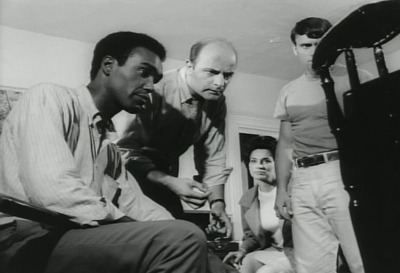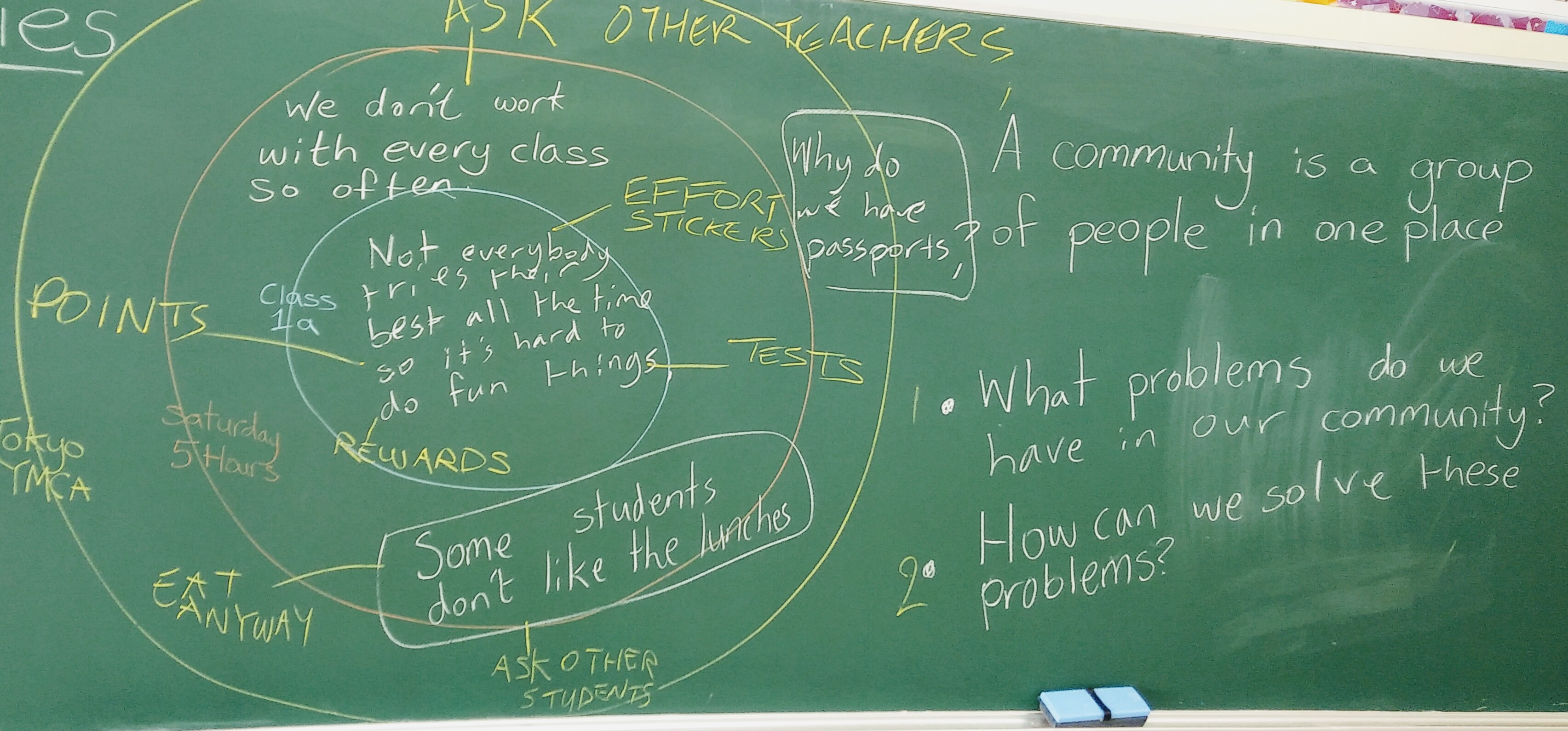
Image from George Romero’s Night of the Living Dead, 1966. Public domain. Could it be a group of teachers worrying about whether they will survive the industry/profession dichotomy?
OK, I know. “Marc, you are one of the people that are involved in Teachers as Workers, aren’t you?”
Actually, probably less than you think but, you know, I support them. I just don’t know how much I actually do apart from I’ve wrote a blog and struggled to archive some stuff for the group.
Anyway, yes, I could have submitted a presentation about how ELT is less exciting and more exploitative. However, I did a bit about listening, and other people did stuff about working issues for teachers.
***
Peter Brereton presented Teacher Low Points: Disillusionment, Demotivation, and Burnout. Sadly, I ended up walking in halfway through the 10-minute plenary because I had other stuff to sort out upstairs, but what I did see was good, engaging and made me happy that somebody is talking about this.
Bill Snyder talked about the notion of isolation in teaching, despite being part of a community. There was also the difference between isolation and solitude, and the amount of anxiety and how we can help each other by talking and stuff.
Sam Morris talked about emotional authenticity in teaching, and the issue of rife fixed-term contracts and the massive amount of part-time teaching (in universities) happened to crop up, because teachers sometimes become more “emotionally authentic”, or ‘themselves’ close to the end of a contract. Basically teachers who know they are getting to the end of the contract, with job anxiety and such, stop worrying about masking their feelings and let them out. I raised the question about whether there was a link in the research about whether there was any link to teaching quality by keeping teachers precarious. He said he’d read research and it pointed to the opposite. I think I also had a longwinded comment-question thing (yes, I can be am one of those people) about feeling guilty for being open about my feelings with adult students. I think the crux was: students are adults, they arguably need English of the real world, feelings are the real world, why hide feelings (though, don’t be weird, you know).
Of the videos, Scott Thornbury painted a vulgar picture of the Spanish ELT employment scene, with pitiful wages and no development to speak of in the language school sector. That would be mainly the same in Japan, though there are a very few cracks of light to be found outside the chain schools.
On a side note – I was a bit worried that it was going to be a bit of a talking shop for people who just work in universities, which kind of happens at a lot of conferences, I guess, and that was the majority of people, but there were some people from language schools and high schools as well. I like talking to people, especially people who don’t just work at universities, because what is a conference for if not to learn from people you might not otherwise meet? (Not wholly a rhetorical question, by the way).


 In the past I have described Twitter as ‘my living room’. It was a place (and we can go on about paradigms of representing networked digital media as actual media or as de facto pseudogeographical sites but I would like to keep the word count down and avoid a reference list, so feel free to think of the internet however you want) I enjoyed being in. Unfortunately, I didn’t own it and therefore I had little way of guaranteeing an environment that would always be pleasant.
In the past I have described Twitter as ‘my living room’. It was a place (and we can go on about paradigms of representing networked digital media as actual media or as de facto pseudogeographical sites but I would like to keep the word count down and avoid a reference list, so feel free to think of the internet however you want) I enjoyed being in. Unfortunately, I didn’t own it and therefore I had little way of guaranteeing an environment that would always be pleasant.